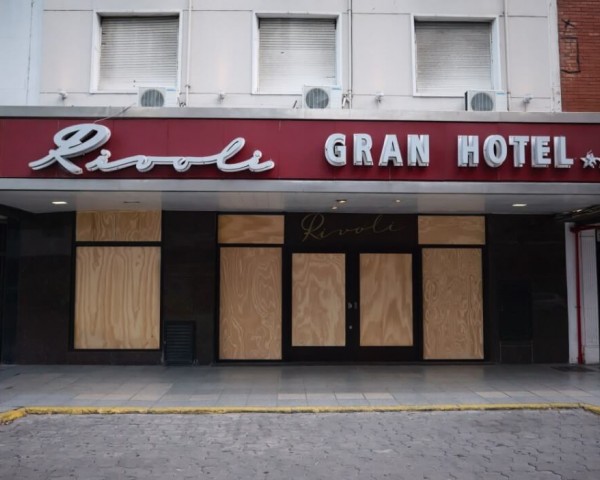Without a doubt, the hotel industry in Argentina was one of the hardest hit by the COVID-19 pandemic. Since March of last year, between 1,700 and 2,000 hotels closed and over 15,000 jobs in the sector were lost, says a report compiled by Argentina’s Tourist Hotels Association (AHT).
“We are losing 226 formal jobs a day in Argentina since the start of the COVID-19 crisis. It took us at least 14 years to generate those 15,000 jobs that have been lost in hospitality alone. The tourism industry has already lost 85,000 jobs. In this context, we are not optimistic about how long it will take us to reach this level of formal employment again,” said Roberto Amengual, president of the AHT.
Hotel Industry in Crisis
“Government aid has been allocated throughout the past year. Now we use the REPRO [Productive Recovery Program]. But most companies are in debt and given the level of indebtedness they cannot obtain loans. We cannot pay the costs with no reservations. We are an industry without revenue for more than a year,” explained the president of the AHT.
Hotels in the Buenos Aires Metropolitan Area are the most affected by the drop in international and business tourism (meetings, conferences and business conventions). According to estimates, hotel closures would account for about 10% of the total. “In addition to the restrictions, there is a lot of fear about being exposed to social situations. Now with the new measures, there was a drop in reservations. In the weeks prior to the announcements, a very strong drop could be observed,” said Amengual.
Industry data revealed that hotel occupancy throughout Argentina during the summer season was around 20% on average, with very few areas that reached 80%, and others that registered as low as 8%, such as the city of Buenos Aires. To cover the costs of keeping a hotel establishment open, occupancy has to be at least 45%.
Hotel Jobs Were Increasing
According to the Institute of Studies on the Argentine and Latin American Reality (IERAL), in the last eight years private employment grew 1.51% in total (a mere 0.2% per year); meanwhile, tourism grew 4.83% (0.68% per year). For this reason, the industry highlighted that formal employment in hotels grew three times more than in the rest of the private sector. “In addition, the hotel industry promotes the inclusion of sectors with a lower educational level and turns them into professionals. In this sense, it is a great engine for regional economies,” explained the AHT.
The hotel industry generates 13.1 jobs for every million dollars invested, way above other industries such as agriculture and automotive. “We are a labor-intensive industry, but this drop sets us back to 1980 levels in terms of economic value generated. The health crisis hit tourism like an earthquake: between 1,700 and 2,000 hotels ceased to exist. It is the industry that lost the most employees,” added Amengual.
Last year, this industry closed with a 68% drop in activity according to IERAL, reporting only 32% of the visitors before the pandemic. If the period between April and December 2020, when more restrictions were in place, is taken into account, the drop reaches 93%. Between February 2020 and February 2021, the number of travelers staying in hotels fell 38.5%. In Mar del Plata, the drop was 62% year-on-year, and in Buenos Aires, it was 84%.




